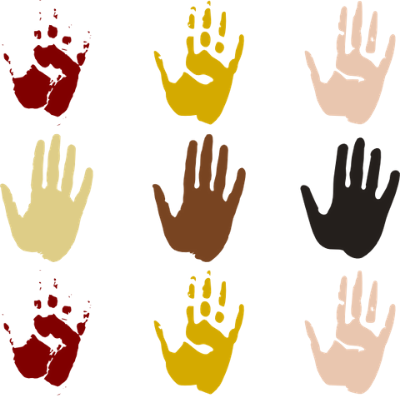Too Well-Off to Seek Help?: The Model Minority Myth of Asian Americans
Too Well-Off to Seek Help?: The Model Minority Myth of Asian Americans

In interacting with neighbors, friends, and clients, it is often clear that generalizing a group of people as possessing an undesirable trait (e.g., stupidity, laziness, manipulativeness) is harmful. But what about a desirable trait? Surely it cannot hurt to tell someone that you love how their group is so smart and hardworking?
This blog post will share research surrounding the harms of such form of microaggression faced by Asian Americans: the “model minority” stereotype. The model minority myth is considered a “positive stereotype”—or a stereotype that generalizes a group with seemingly desirable attributes. The model minority stereotype includes ascribing Asian Americans intelligence, diligence, and law-abidingness. Some examples of this stereotype are the portrayals of Asians as mathematical geniuses, musical prodigies, and hardworking immigrants who have achieved the “American Dream.” Consistently, white American college students presented with photographed faces of eight Asian Americans rated the Asian Americans as significantly more intelligent than the photographed faces of Hispanic and white Americans and more conscientious than white Americans.3
The model minority myth places high expectations on Asian Americans, leading to feelings of self-doubt, inadequacy, psychological problems, and suicidality.8 Compounding these negative effects on mental health, the model minority stereotype may also discourage Asian Americans from seeking help. Asian Americans are less likely to seek mental health services and are more likely to present with greater severity of symptoms when they do seek services, compared to white Americans.1 The sources of this reluctance are numerous, including the role of shame among many Asian cultures and the general unavailability of culturally and linguistically appropriate mental health resources13, which may require larger level changes. Importantly, greater internalization (AKA belief) of the model minority myth is also linked to lower likelihood of seeking mental health treatment.7 Further, when exposed to the model minority stereotype, individuals were less likely to detect clinical symptoms and more likely to perceive better mental health functioning for a member of that group.2,4 Thus, individuals affected by the model minority myth are likely under-treated.
The model minority stereotype is especially pervasive and may discourage help-seeking behaviors among Asian Americans for several reasons.
- Although the targets of stereotypes generally react with negative emotions, positive stereotypes are more likely to persist and “pass under our radar” than negative stereotypes. Compared to negative stereotypes, endorsement of positive stereotypes is less likely to be regarded as inappropriate9 and more likely to be endorsed.4 Further, white individuals perceived individuals who endorsed these positive (vs. negative) stereotypes as less prejudiced and more likable11 and experienced lower sense of skepticism and emotional vigilance from reading these statements. However, skepticism and emotional vigilance are necessary emotions to increase correction for stereotyped thinking.12 This may explain why the model minority myth is less likely to be challenged.
- Exposure to positive stereotypes, compared to negative or no stereotypes, enforces the belief that there are fundamental differences among racial groups6, possibly due to the greater likelihood of individuals to endorse and feel less skepticism towards positive (vs. negative) stereotypes. Considering the Asian Americans’ struggle as a “perpetual foreigner,” who are perceived as less “American” than their Hispanic, African, and white counterparts3, this belief can be especially detrimental. Indeed, Asian Americans reported awareness of their denial of the “American” status3, identified the perpetual foreigner stereotype as a common form of microaggression Asian Americans experience14, and reported greater anger and dislike for its endorser.3 Given the importance of therapeutic alliance, the prevalence of white providers in treatment, and general awareness of how they are perceived by white Americans, Asian Americans may be further discouraged to seek mental health services.
- Finally, like all stereotypes, the model minority myth masks within-group differences and invalidates the struggles of individuals who do not fit the stereotype. The social categorization of “Asian Americans” lumps over 43 different ethnic groups10 into one umbrella categorization, and consequently into the “model minority” stereotype, despite each individual’s respective background. Indeed, data show significant within-group differences among Asian Americans of different ethnic origins in college education (e.g., 58% of individuals from India, Pakistan, Bangladesh, and Sri Lanka vs. 10% of Pacific Islanders) and poverty level (e.g., 14% of Chinese Americans vs. 64% Hmong).15 Thus, the stereotype invalidates the experiences and struggles of many individuals labeled Asian American, which in turn, may discourage them from seeking or receiving help. Extended to racial hardships, the model minority myth may also be a contributing factor in Asians feeling invisible when discussing race and unjustified to present their concerns.14
Although positive stereotypes can be harmful and persistent, they can also be addressed. Here are some suggestions:
- Be mindful and catch the impulse: Does what I am thinking or wanting to share generalize a group of people?
- Self-reflect: What is the function of this impulse? What is my goal (e.g., connect with the group member, select team member efficiently)?
- Evaluate: Will this thought (i.e., belief) or behavior (e.g., statement or decisions based on stereotypes) move me closer to my goal?
- Restructure: Given the harms and the falsity of the stereotype, can I say or think something else that is less harmful and flawed?
Reference
- Chen, S., Sullivan, N. Y., Lu, Y. E., & Shibusawa, T. (2003). Asian Americans and mental health services: A study of utilization patterns in the 1990s. Journal of Ethnic and Cultural Diversity in Social Work, 12(2), 19-42.
- Cheng, A. W., Chang, J., O’Brien, J., Budgazad, M. S., & Tsai, J. (2017). Model minority stereotype: Influence on perceived mental health needs of Asian Americans. Journal of Immigrant and Minority Health, 19(3), 572-581.
- Cheryan, S., & Monin, B. (2005). Where are you really from?: Asian Americans and identity denial. Journal of Personality and Social Psychology, 89(5), 717-730.
- Devine, P. G., & Elliot, A. J. (1995). Are racial stereotypes really fading? The Princeton trilogy revisited. Personality and Social Psychology Bulletin, 21(11), 1139-1150.
- Gupta, A., Szymanski, D. M., & Leong, F. L. (2011). The “model minority myth”: Internalized racialism of positive stereotypes as correlates of psychological distress, and attitudes toward help-seeking. Asian American Journal of Psychology, 2, 101-114. doi:10.1037/a0024183
- Keller, J. (2005). In genes we trust: the biological component of psychological essentialism and its relationship to mechanisms of motivated social cognition. Journal of Personality and Social Psychology, 88(4), 686.
- Kim, P. Y., & Lee, D. (2014). Internalized model minority myth, Asian values, and help-seeking attitudes among Asian American students. Cultural Diversity and Ethnic Minority Psychology, 20(1), 98-106.
- Kim, B. S., & Park, Y. S. (2008). East and Southeast Asian Americans. In G. Mcauliffe (Ed.), Culturally alert counseling: A comprehensive introduction (pp. 189–219). Thousand Oaks, CA: Sage.
- Lambert, A. J., Khan, S. R., Lickel, B. A., & Fricke, K. (1997). Mood and the correction of positive versus negative stereotypes. Journal of Personality and Social Psychology, 72(5), 1002-1016.
- Lee, S. M. (1998). Asian Americans: Diverse and growing. Population Bulletin, 53(2). Washington, DC: Population Reference Bureau.
- Mae, L., & Carlston, D. E. (2005). Hoist on your own petard: When prejudiced remarks are recognized and backfire on speakers. Journal of Experimental Social Psychology, 41(3), 240-255.
- Siy, J. O., & Cheryan, S. (2013). When compliments fail to flatter: American individualism and responses to positive stereotypes. Journal of Personality and Social Psychology, 104(1), 87-102.
- Sue, D. W., & Sue, D. (1999). Counseling the culturally different: Theory and practice (3rd edition). New York: Wiley.
- Sue, D. W., Bucceri, J., Lin, A. I., Nadal, K. L., & Torino, G. C. (2009). Racial microaggressions and the Asian American experience. Asian American Journal of Psychology, S1, 88-101.
- U.S. Department of Health and Human Services. (2001). Mental health:
- Culture, race, and ethnicity—A supplement to Mental Health: A Report of the Surgeon General. Retrieved from http://www.surgeongeneral.gov/library/reports/












